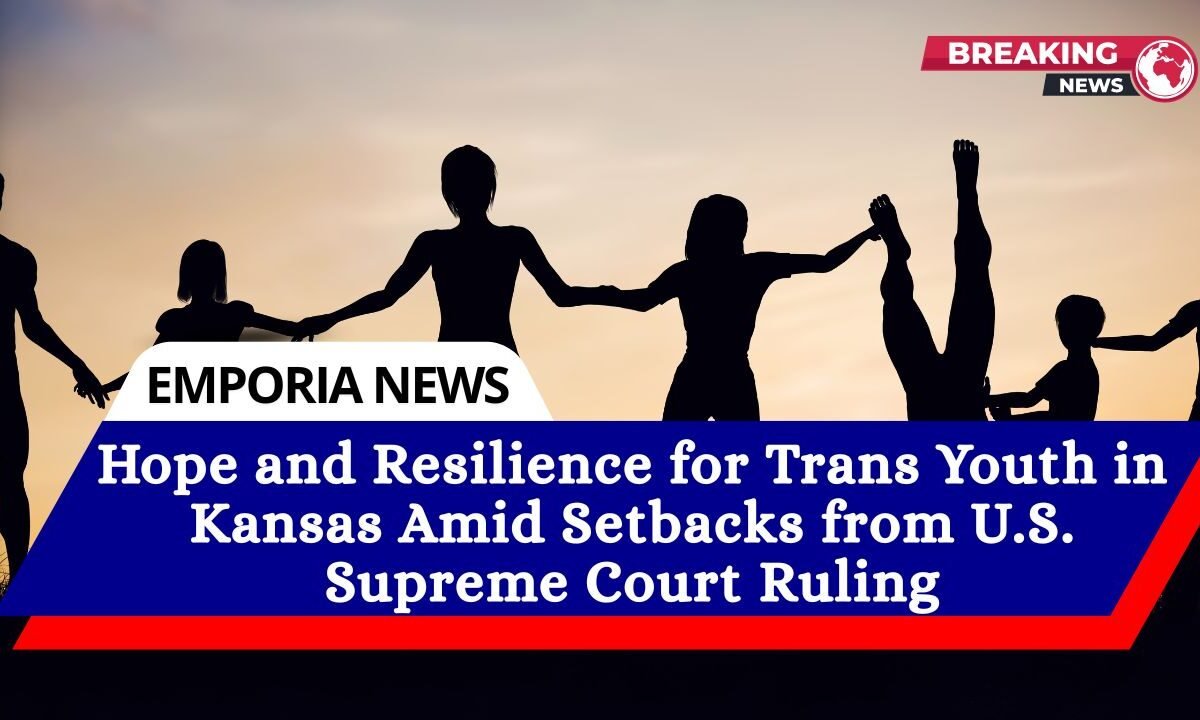The recent decision by the U.S. Supreme Court to uphold Tennessee’s ban on gender-affirming care for minors has intensified legal and emotional uncertainty for transgender youth across the country, including in Kansas.
For those affected, including University of Kansas student Anthony Alvarez, the situation echoes the frustrating delays and bureaucratic hurdles that often define their experience with transition-related healthcare.
Alvarez, who began his medical transition at the age of 16, recounts long waits in doctors’ offices, at the DMV, and in courtrooms—all part of an emotionally taxing journey.
He and his family were often left wondering why private health decisions required so many layers of administrative approval.
U.S. v. Skrmetti Ruling and Its Broader Impact
On June 18, the U.S. Supreme Court ruled in the United States v. Skrmetti case, supporting Tennessee’s law banning gender-affirming care for minors.
The decision determined that the state law did not breach the Equal Protection Clause, opening the door for similar bans in other states, including Kansas.
While this does not completely end access to care for transgender youth, it sets a precedent that will require new legal strategies to challenge such laws.
Alvarez reflected on his own delays in receiving care due to insurance red tape, describing the emotional toll of knowing help is within reach but inaccessible due to external barriers. The outcome, he says, should not breed despair—but determination.
Kansas Sees Legal Wins for Trans Community
Despite national setbacks, Kansas has experienced important progress. In Harper v. Kansas, the Kansas Court of Appeals ruled in favor of allowing transgender individuals to update their gender markers on driver’s licenses.
For Alvarez, who has gone through four license changes since 2022, the decision means one less bureaucratic obstacle.
Although implementation is pending, the ruling is a step toward official documentation that aligns with trans residents’ identities.
Another pending legal challenge is Loe v. Kansas, a case filed by the ACLU to overturn the state’s ban on gender-affirming care for minors.
While the Skrmetti decision does not outlaw gender-affirming care altogether, it permits states to set their own restrictions—much like the Dobbs v. Jackson decision did for abortion.
A win in Loe could restore access to care for Kansas youth and influence similar battles nationwide.
Support Beyond the Courts
Given the slow pace and uncertain outcomes of court proceedings, legal action alone isn’t enough. Organizations like the Trans Youth Emergency Project (TYEP) are providing logistical aid and $500 travel grants to families forced to seek care out of state.
TYEP offers Kansas-specific assistance and maintains a directory of in-state resources still available for trans youth.
These groups are essential lifelines for families unable to wait for the court system to deliver justice. Their work ensures that care is available now—not just in the future.
The fight for trans rights in Kansas and beyond continues amid both progress and obstacles. The Skrmetti ruling is a serious setback, but it does not signal the end of access to gender-affirming care or identity recognition.
Through legal challenges, community support, and grassroots action, trans youth and their allies are pushing forward.
As Anthony Alvarez emphasizes, the waiting may continue—but so does the resilience. Kansans must stay engaged, uplift one another, and remain focused on creating a state where trans youth can thrive with dignity and support.




